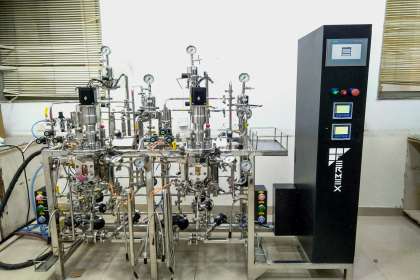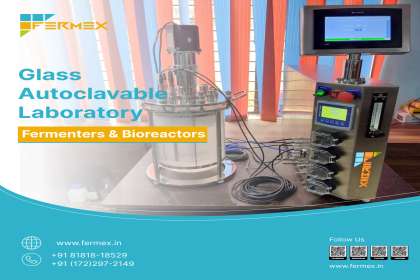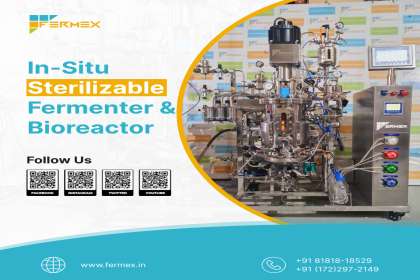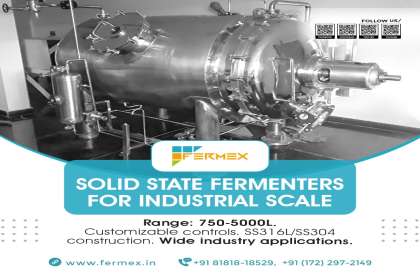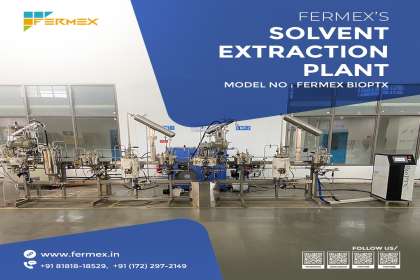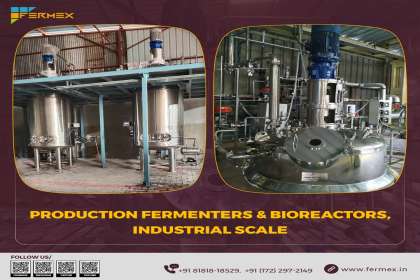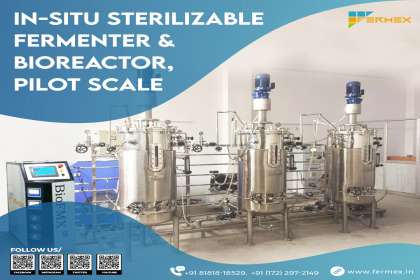Fermex Fermenters: Advancing Probiotic Production for Healthier Lives

Use of Fermenter in the Production of Probiotics
Fermex Fermenters play a crucial role in the production of probiotics. Probiotics are live microorganisms that confer health benefits when consumed in adequate amounts. Fermentation is the process by which these beneficial microorganisms are cultured and multiplied to reach the desired concentration for commercial production.
Fermenters provide a controlled environment for the efficient growth and multiplication of probiotic strains, allowing for the large-scale production of these beneficial microorganisms. They play a vital role in ensuring the viability and quality of probiotic products that are available for consumer use.
Key stages involved in process of making Probiotics using Fermenters
Strain Selection: Choose probiotic microorganism strains based on their suitability for gastrointestinal survival and health benefits.
Inoculum Preparation: Create a starter culture by inoculating a small amount of selected probiotic strains into a sterile growth medium.
Fermenter Setup: Prepare the controlled environment in the fermenter, ensuring sterility and equipping it with essential monitoring and control systems.
Medium Preparation: Create a nutrient-rich growth medium tailored to the specific needs of the probiotic strains.
Inoculation and Fermentation: Transfer the inoculum to the main fermenter and allow probiotic strains to grow under controlled conditions, optimizing parameters like temperature, pH, agitation, and aeration.
Monitoring and Control: Continuously monitor parameters like pH, temperature, oxygen, and biomass concentration to maintain optimal growth conditions.
Harvesting: Stop fermentation when probiotic strains reach the desired cell density and harvest the probiotic culture, typically using centrifugation or filtration.
Processing and Formulation: Process harvested probiotic cells for stability and formulation, which may involve freeze-drying, microencapsulation, or spray-drying.
Quality Control: Rigorous testing is conducted to ensure viability, purity, and potency of probiotics, including viability assays, microbial enumeration, genetic identification, and contamination checks.
Packaging and Distribution: Formulate probiotics into dosage forms (e.g., capsules, tablets, powders), package, and label for distribution to consumers.


Fermex fermenters for Probiotics production.
- In situ Solid State Fermenter (Industrial scale)
- In situ Solid State Fermenter (Pilot scale)
- In situ Submerged Fermenter (Industrial scale)
- In situ Submerged Fermenter (Pilot scale)
Benefits of Fermenters in the Production of Probiotics.
Controlled Environment: Fermenters offer precise control over factors like temperature, pH, agitation, and aeration, creating ideal conditions for probiotic growth.
Scalability: Various fermenter sizes enable large-scale production; meeting market demands efficiently.
Enhanced Productivity: Controlled conditions in fermenters promote rapid probiotic growth, reducing fermentation times and increasing overall productivity.
Contamination Control: Fermenters maintain sterility, minimizing contamination risk and ensuring the purity and safety of probiotic cultures.
Nutrient Optimization: The growth medium can be customized to meet probiotic nutritional needs, enhancing growth and viability.
Process Monitoring and Control: Sensors and monitoring systems allow real-time adjustment of parameters, maintaining optimal growth conditions and product quality.
Consistency and Standardization: Fermenters ensure batch-to-batch consistency and standardized product quality, vital for consumer confidence in probiotic products.









